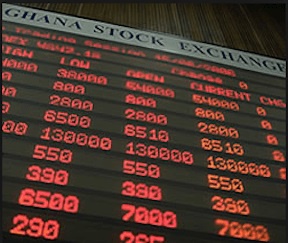Managers of the Ghana Stock Exchange are worried by the number of erstwhile listed companies that have gone private over the past half a decade. Since 2017, eight companies have had their listing on the Ghana Stock Exchange cancelled or suspended or have on their own initiated their delisting from the local bourse.
Worse still, voluntary delisting seems to be becoming more and more popular as the stock market tries to cope with its longest bear market so far, which is accused of significantly undervaluing the companies listed and trading on it.
Even as PZ Cussons enters the final stage of the regulatory process for its delisting, Mechanical Lloyd, just a fortnight ago, announced its decision to seek shareholders approval to follow suit.
Instructively, both companies are among the oldest listed firms, their shares having been publicly traded since the early 1990s.
Their delisting follows the similarly voluntary delisting of Accra Brewery about a decade ago.
Even more firms, like Pioneer Kitchenware, African Champion Industries, Golden Web, Transactions Solutions Ghana and UT Bank underwent compulsory delisting for corporate governance infractions, particularly failure to adhere to financial reporting standards.
The GSE’s management cracked the whip after being criticized for failing to take action against UT Bank for financial reporting infractions, until its industry regulator, the Bank of Ghana actually revoked its operating license for insolvency, leaving shareholders in the lurch.
Speaking on the recent delistings from the local bourse, Databank’s Alex Boahen, has attributed the ongoing spat of delistings situation to a plethora of issues including the poor performance of the companies.
“The reason why investors invest in companies is because they want the companies to be profitable so that they can pay dividends to them. They want their share prices to actually appreciate on the market so that they can make capital gains when they sell their stock. But if you look at it, recently these companies have actually failed to deliver both dividends and also share price appreciation, and it stands to reason that when it gets to a point, it’s probably in the interest of the shareholder and investor community for these companies to actually go off the market so that they can leave the public spotlight and then they can re-strategize and when things actually improve they can always come back and apply and list on the market again.”
For example, companies with institutional majority shareholders get tempted to delist when minority shareholders are reluctant to back major new investments that require rights issues at a time that dividends are not being paid or capital gains from share price appreciation are not being achieved.
While encouraging the about 30 companies still on the local bourse to strengthen their corporate governance systems as well as improve their operations in order to avoid being delisted, Alex Boahen also advised other businesses to consider listing on the Ghana Alternative Market, GAX, to avoid the strict compliance standards of the main market.
“I’ve always seen the call encouraging companies to list on the market as a brilliant idea. I think it needs to be pushed more so that at least we can get a lot more SMEs coming unto the market, especially the GAX. The rules on the GAX market is actually a bit more relaxed than on the main market because even in terms of financial reporting the GAX companies do their reporting twice in a year whiles on the main market, you report four times in a year. So I will advise that some of these companies can repackage themselves and list on the GAX if possible.”
The Ghana Stock Exchange Composite index (GSE-CI) which tracks the weighted average performance of shares of listed companies witnessed a significant drop of about 18 percent from January to August 21 of 2020.
Meanwhile, the composite index experienced a drop of about 11 percent within the same period in 2019.
Business News of Friday, 9 October 2020
Source: goldstreetbusiness.com
Delisting trend on Ghana Stock Exchange continues
 Ghana Stock Exchange (GSE)
Ghana Stock Exchange (GSE)
Entertainment















